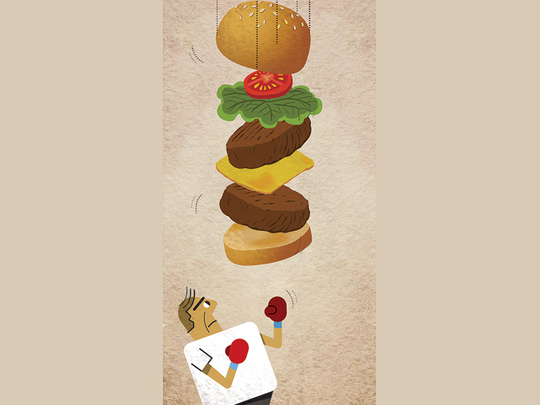
For decades, we have read articles and reports, watched documentaries and listened as doctors and nutritionists warned us about the dangers of fast food, and processed food of all kinds. Obesity as well as chronic disease cases around the world rose to alarming and unprecedented rates, all while fast food chains and corporations enjoyed soaring profits across the globe. All efforts by governments and individuals to raise awareness about fast food consumption and its implications, though extensive at times, have not done much to change people’s eating habits and lifestyles or reverse the escalating obesity rates and all the risks that come with it.
Until recently that is. The first quarter of 2015 saw McDonald’s (the largest fast food chain in the world and longtime icon) sales drop by 2.3% globally. Surprisingly, the famous fast food chain’s sales suffered most in the Asian and the Middle Eastern markets, where sales have declined by over 8% during the first 3 months of this year. While many attribute this unexpected turn of events to the growing popularity of other “higher-end” burger joints such as Shake Shack and its likes, it is my personal belief that global efforts through new age media have finally begun to reap positive results, at least to some extent.
In the UAE, where the obesity rate is double that of the world average and where the culture of “eating out” has become the norm, the need for a more aggressive and targeted approach to raise awareness about the kinds of food served by restaurants is more pressing than ever. This is especially important given the number of restaurants and supermarkets serving or selling food they claim is all natural, low in fat or sugar and preservative-free. Though consumer awareness has improved, general knowledge about eating out and what it entails is still lacking. It is very easy to fall into the same trap that leads to obesity and disease if the consumer is not knowledgeable enough to read between the lines and see through such claims.
Documentaries such as Fast Food Nation and Fed Up brought us face to face with the shocking reality of the food industry. However, it is through Twitter, Instagram and Snap Chat accounts managed by the likes of Fahad Al Yahya and Riham Fakhereddine that real change began to take effect. These personal efforts by nutritionists, doctors and fitness enthusiasts have provided us with nutritional information of our everyday food along with healthier alternatives, easy recipes and everyday tips for leading better lifestyles. In the UAE, Her Highness Sheikha Lateefa bint Maktoum Al Maktoum plays a pivotal role in what is known as the UAE Fitness Movement (#UAEFitnessMovement), through which she shares her daily exercise routines and recipes, as well as motivational messages to help her followers join this amazing movement.
In this article, I would like to draw attention to the role privately owned food and beverage businesses can and should play in building a society with more strength, health and vitality. Having worked in the nonprofit sector for eight years, I am a firm believer in corporate social responsibility; and in the case of the F&B sector, the Latin phrase Primum non nocere (first, do no harm) should be the core principle of any CSR initiative.
Restaurants, cafes and other food-related businesses, particularly the many emerging from the UAE, can nudge people around them towards healthier living by understanding that they too have a responsibility towards their consumer base. In recent years, we saw many Emarati restaurants and food businesses come to life and we could not be more proud of their creativity and culinary genius. That said, if you are an owner of a local F&B business of any sort, it is both possible and necessary to substitute your products with ones that are made of healthier ingredients, lower in calories, trans fats, processed sugar and other harmful ingredients. I say possible because, as mentioned, the sudden disinterest in fast food chains means that there is a wave of awareness that business owners should ride and take advantage of; and necessary because whether you are business owner or a consumer, you make up the social fabric of this country and are both accountable and responsible for its well-being.
Some local businesses such as Kitsch Counter, Circle Café and Catwalk Cow have already taken that step and the result has been food products of the best taste and quality, without having to compromise the consumer’s well being.
Substituting the ingredients of your products with healthier, less harmful ingredients is one way to tackle the issue. Another way is to ensure quantities served and sold are reasonable. The super-size-me days should be behind us all, because too much of anything, including healthy food, can in fact be a bad thing.
From choosing ingredients with more care to printing number of calories on menus, there is no limit to what businesses can do to promote better eating habits and raise awareness in the UAE community should they decide to commit. After all, what good is the money we make if the person harmed by the products we sell is a friend, neighbor or family member?
Maria Hanif is an Emirati writer based in Dubai. You can follow her on on www.twitter.com/@maria_hanif










